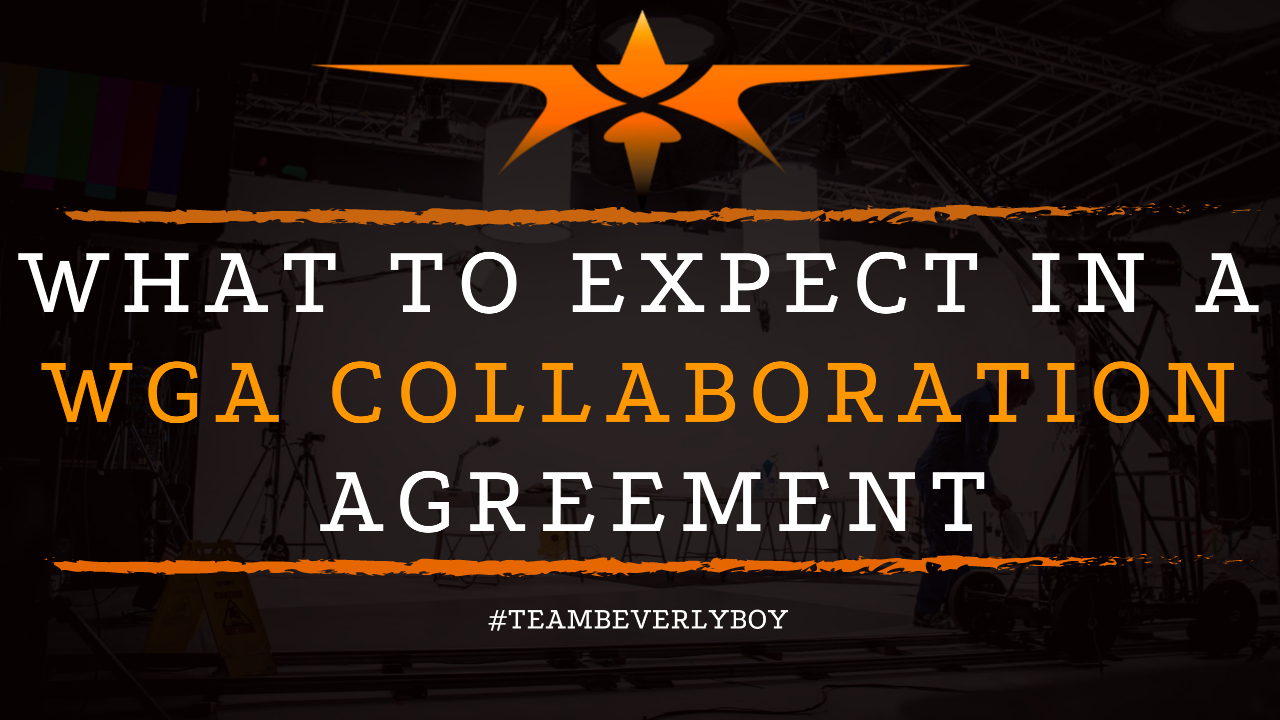
What to Expect in a WGA Collaboration Agreement
Knowing what to expect when you form a collaboration between yourself and other writers that work on a screenplay together is important. Especially when it comes to signing a WGA collaboration agreement. As a screenwriter, you’re very likely to have instances in which you collaborate with others on a script, story or treatment. In doing so, establishing a clearly defined writer’s collaboration agreement is important and the Writer’s Guild of America (WGA) is a good starting point for these agreements. But knowing what to expect from a WGA collaboration agreement is just as important the agreement itself.

What is the WGA Collaboration Agreement?
The WGA collaboration agreement represents a unique agreement. One entered into between any writers that are working together on a film script or treatment.
Executed by the Writers Guild of America, and entered into between the individuals working on a film script together. The WGA collaboration agreement lays out the unique details of a project.
Specifying the parties involved. And how each will contribute. As well as how things like credit, voluntarily withdrawing from the project, and disputes will work.
Before Entering Agreement
Many writers choose to enter into a collaboration agreement. And in doing so opt to use the WGA collaboration agreement for its ease of use.
But before writers use this contract over the U.S. Copyright registration with a formal collaboration agreement attached to the copyright. It’s important to understand how WGA arbitration will work. Should such an agreement is entered into and a dispute later occurs.
WGA Arbitration
In the event of a dispute to a writer’s collaboration agreement, many wonder how the WGA arbitration process will work.
While use of the WGA collaboration agreement does not automatically mean that any dispute to the agreement will be handled by WGA arbitration. There are some instances in which WGA arbitration would come up.
MBA
If a production is part of the WGA Theatrical and Television Basic Agreement (MBA) and there were disputes. Then the WGA arbitration would apply.
Also, if the production company were a signatory partner with the WGA, then arbitration with the WGA would also apply. It’s also important for you to know.
That if any of the writers that enter into the WGA collaboration agreement are members and registered with the WGA. Then in order for a production company to work with the screenplay the company would have to first become a WGA signatory.
Is a WGA Collaboration Agreement Right for My Project?
If you’re working with several other writers on a script, it’s going to be important to enter into a written agreement. One that will provide protection for you in the event that any disputes should arise.
In fact, a WGA collaboration agreement is important because it outlines how profits will be shared if the script is produced. It dictates how decisions are made between the group.
And it provides unique rights to each of the collaborators involved in the production. However, there are other writer collaboration agreements besides the WGA collaboration agreement.
And if none of the writers are members of the WGA some of the other options might be equally useful for your needs. Speak with an entertainment attorney about the contracts that are most valuable for your project before entering into any agreements or signing anything.



